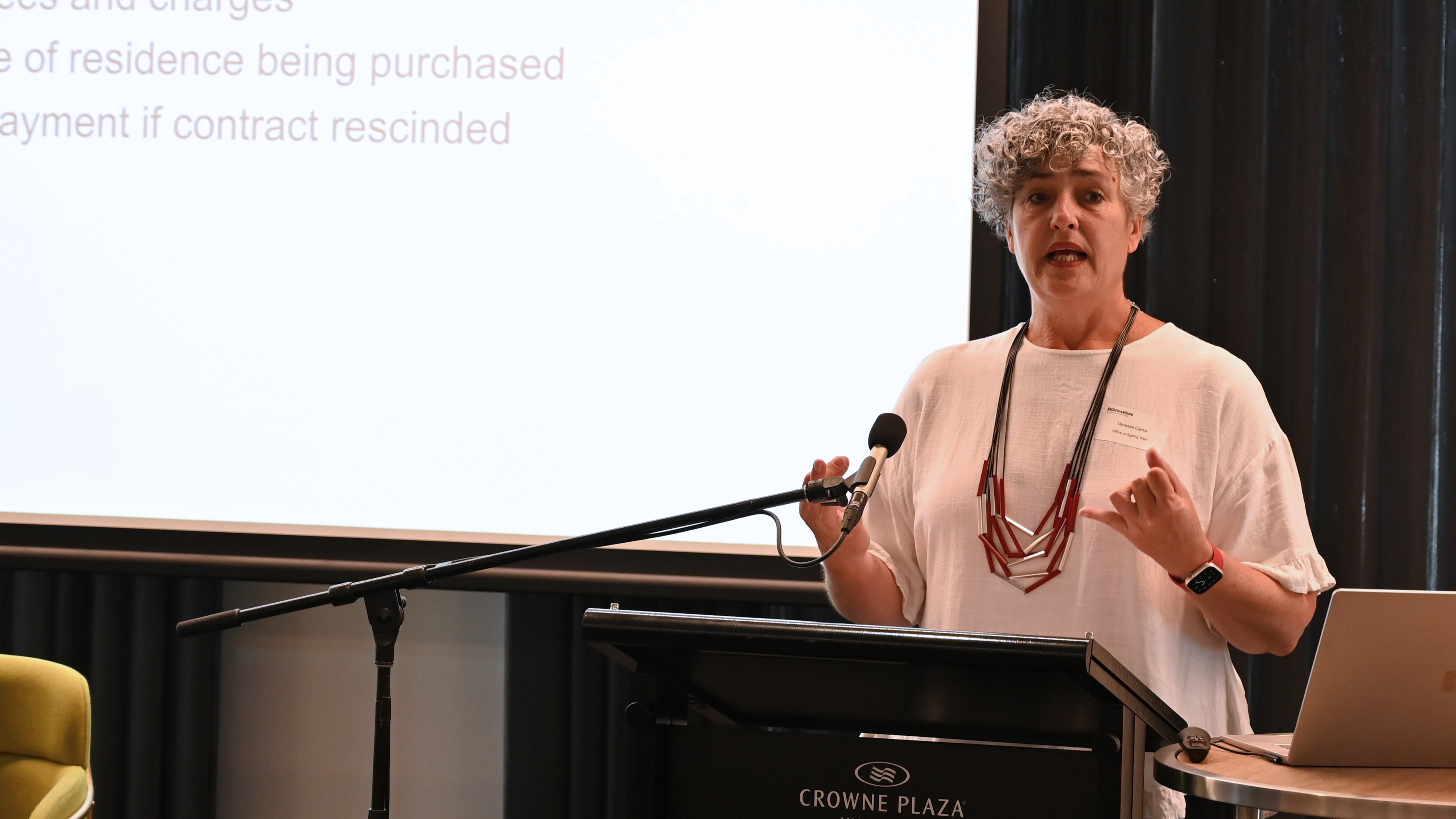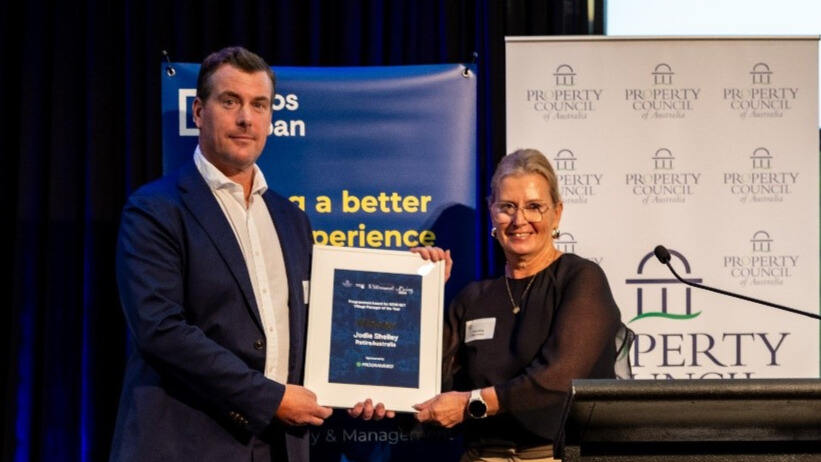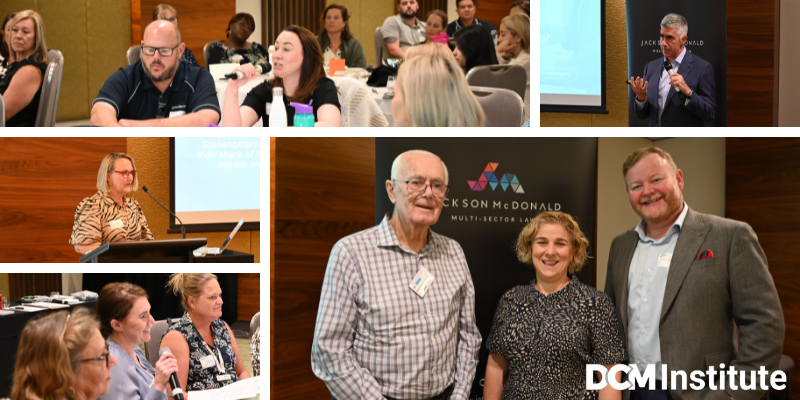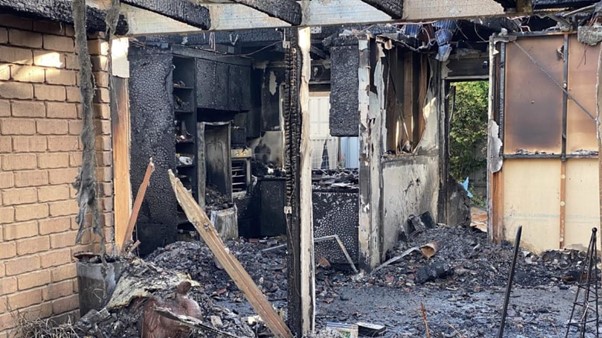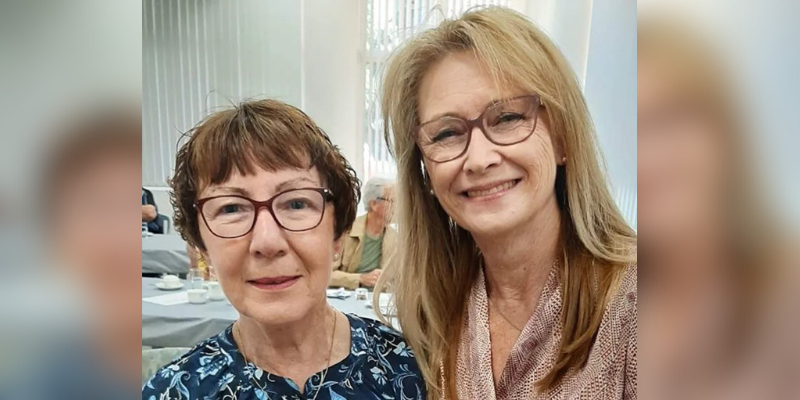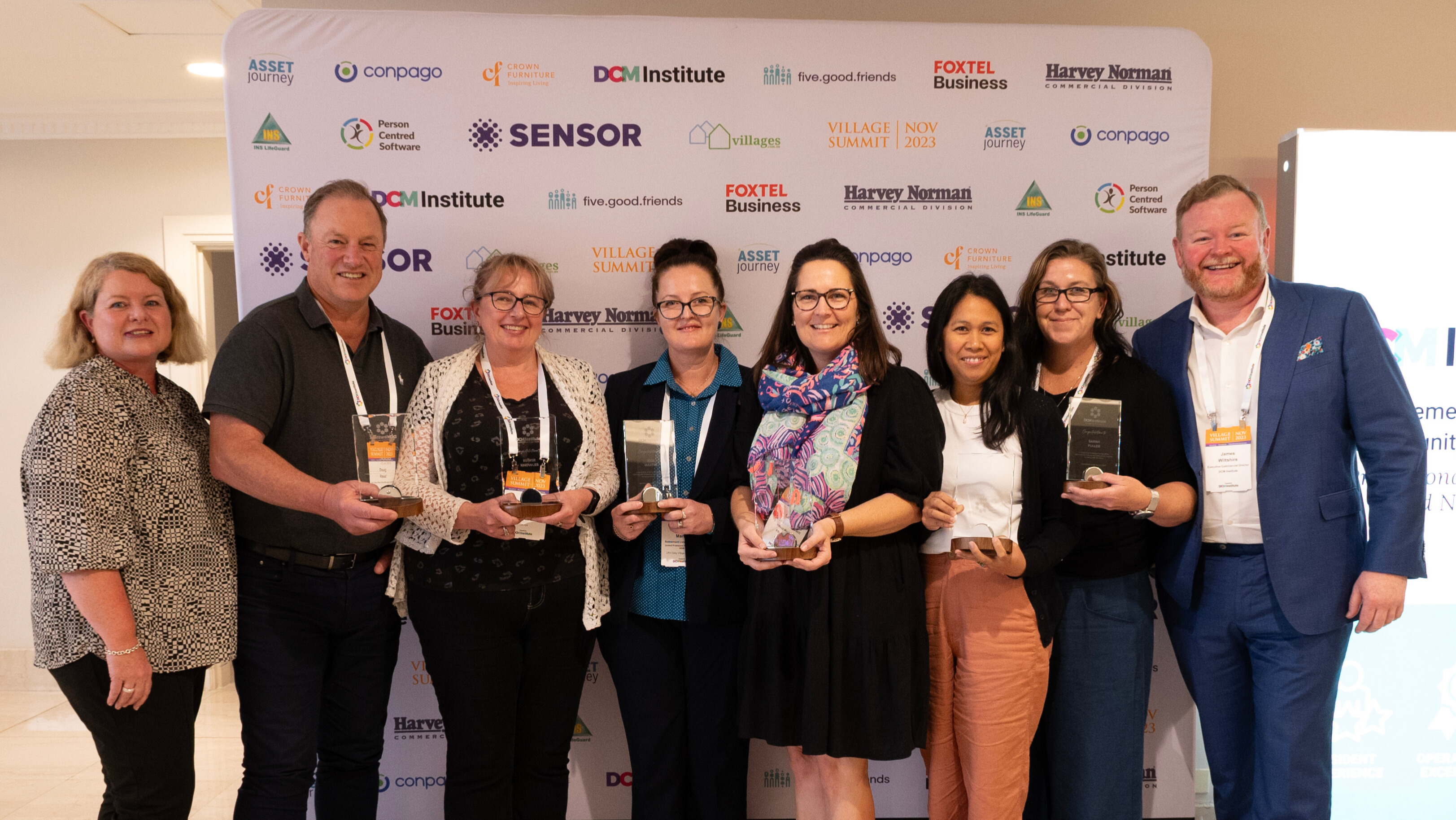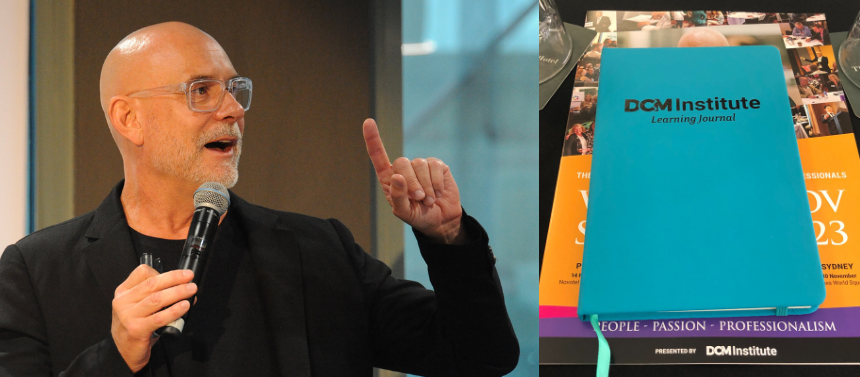We were saddened to hear about the passing of Jim Gibbons this past week.
Following extensive consultation with residents, operators and key stakeholders, the South Australian Health Minister, Chris Picton, tabled the Retirement Villages (Miscellaneous) Amendment Bill 2024 (SA) (Bill) in Parliament last week.
DCM Institute and the Retirement Village Residents Association (RVRA) hosted two webinairs on abuse in retirement villages in July 2023 after the Residents’ Association carried out a survey on psychological abuse.
DCM Institute member Jodie Shelley named Manager of the Year for NSW and ACT by the Retirement Living Council at last week’s Outlook event.
The DCM Institute’s first Professional Development Day series for 2024 commenced in Perth this week.
It was heartbreaking to read about the fire in an Adelaide retirement village last week where an 83-year old man …
at Catholic Healthcare’s St Hedwig Retirement Village It was an emotional moment when Kathy Eberl announced her retirement as Village …
At VILLAGE SUMMIT in Sydney on 30 November we welcomed another nine Village Managers into the 1,000 Club. Live in …
Village Summit concluded in Sydney yesterday, with DCM Group CEO, Chris Baynes, declaring a ‘golden decade’ ahead for Village Professionals. …
That’s a wrap. After three weeks and five capital cities, Village Summit 2023 finished up in Sydney yesterday. Across the …
As a Village Manager, ensuring a welcoming and festive atmosphere for residents during the holiday season comes somewhat of a …
As we travel around the country for VILLAGE SUMMIT, there has been one topic of discussion that stood out. That …


